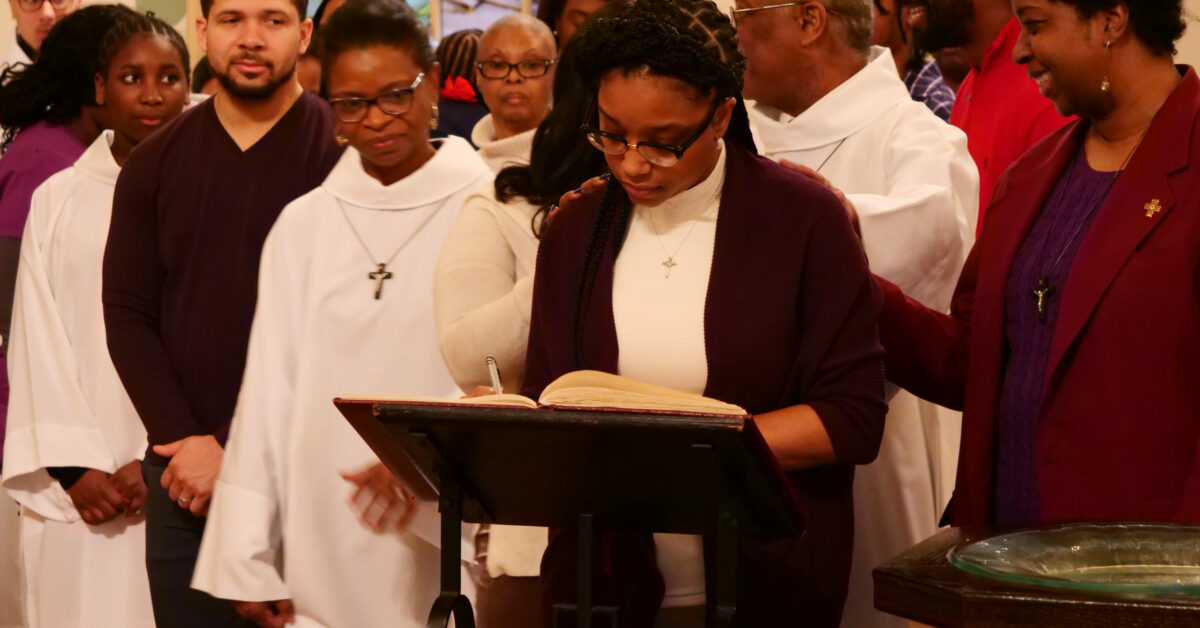What is the Role of a Sponsor in the Adult Catechumenate?
Adult sponsors play an important role in the formation of new Christians. This week we begin a two-part series on the role of sponsors in the catechumenate. First, this week, what is the role of a sponsor? In two weeks, Rhoda will address the traits of an effective sponsor. When considering the role of sponsors, it is vital to remember that they play just one role in the formation process. It is the whole Christian community that “births” and nurtures new Christians and there is a team in the congregation that serves in various roles to shape that formation. As the book Guide for Sponsors by Ronald Lewinski (Liturgy Training Publications, 2008, p. 16; I am relying upon his outline of primary responsibilities for the sponsor) says, “In the more immediate circle that surrounds the one you sponsor you will find catechists, catechumenate team members, pastoral staff, clergy, and other members of the parish community sharing their time and gifts in the creation of a seedbed where conversion, formation, and strong faith-building can occur” (p. 16). The sponsors are not catechists, that is, primary teachers of the faith. But they are one of the direct links to the life of the congregation and all its members. The sponsor journeys with the catechumen throughout all four phases of the catechumenate and does three primary things: represents the Christian community to the catechumen and the catechumen to the Christian community; serves as a companion; and mentors, coaches, and guides them throughout the formation process. Usually, the sponsor never really ceases being a sponsor. Even after baptism they are often still in relationship with the baptized and continue to mentor and guide them throughout life.
Sponsors represent the Christian community
A primary role of the sponsor is to represent the Christian community to the catechumen. The sponsor is often the primary agent for expressing hospitality to the catechumen, maintaining an ongoing expression of welcome by the community throughout the process. Through that hospitality and building of relationship with the catechumen the sponsor exposes the catechumen to the church’s life and the spirit that pervades its life together. And while sponsors are not catechists, they do share with the catechumen the tradition of biblical faith through reflection on their own believing and behaving as one who belongs to the Christian community. Finally, the sponsor also represents the catechumen to the church. As they stand alongside the catechumen before the congregation throughout their formation pilgrimage, they bear witness to the catechumen’s formation to the assembly. And before incorporation into the assembly the sponsors are asked to provide to the church an assessment of the catechumen’s formation.
Sponsors are Companions
Very simply, sponsors are companions and friends to the catechumens along the formation journey. Sponsors accompany them in the celebration of the various liturgical rites, such as acceptance and election, and in the learning opportunities (often both Sundays and midweek) throughout the catechumenate. They are present with the catechumen so that they know that the entire congregation is making the journey with them. The catechumens are not alone. And the sponsor makes themselves available to the catechumens throughout the process. If they need someone to talk to, the sponsor is there. They are someone whom the catechumen can trust and with whom they can process their own formation.
Sponsors are Mentors, Coaches, and Guides
Although these titles bear somewhat different connotations in terms of the role the sponsor plays, in this blog I am going to treat them as synonyms. Sponsors guide the catechumen toward baptism. They mentor the catechumen in what a life of faith looks like. They coach the catechumen toward understanding the life of faith and how to live it. The sponsor’s mentoring is grounded in their own personal relationship with God in Jesus Christ, their faith and their experience of living a life of faith. The catechumen learns from the sponsor the way the sponsor lives a life rooted in faith. It is a relationship of spiritual nurture. The sponsor as a coach and guide encourages the catechumen throughout the journey (the sponsor should be their biggest supporter). And they challenge the catechumen when their effort flags and their enthusiasm diminishes. Throughout the entire journey, they seek to coach the catechumen to integrate their faith into the entirety of their life.
The sponsor is an important member of the Christian community who serves as a means of God’s “birthing” new Christians through the water and the Word. As St. Paul says in 2 Corinthians 4:7, “But we have this treasure in jars of clay, to show that the surpassing power belongs to God and not to us.” The sponsor is one of those vital jars of clay.
